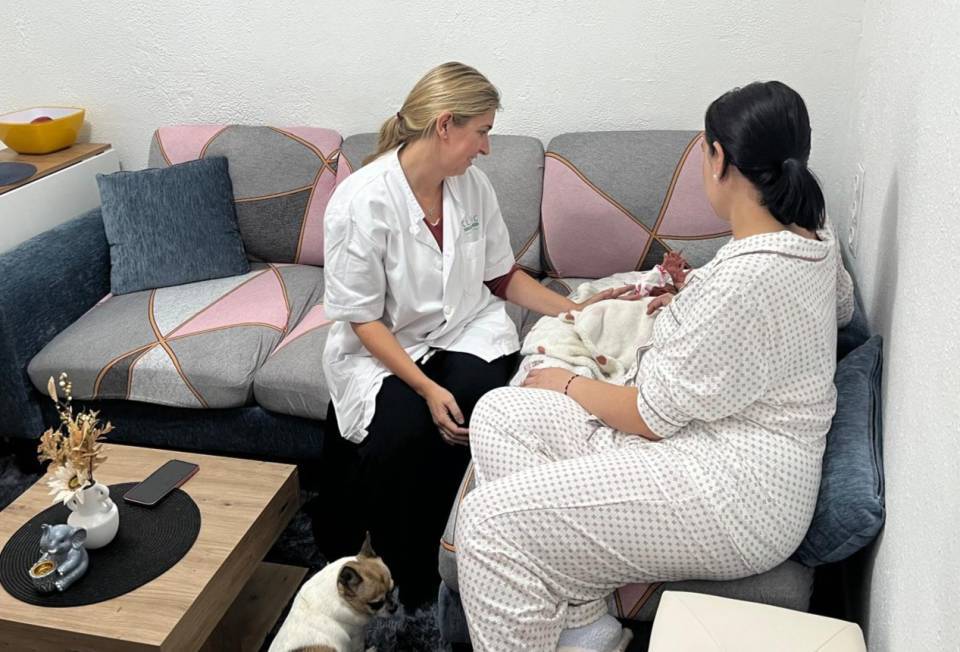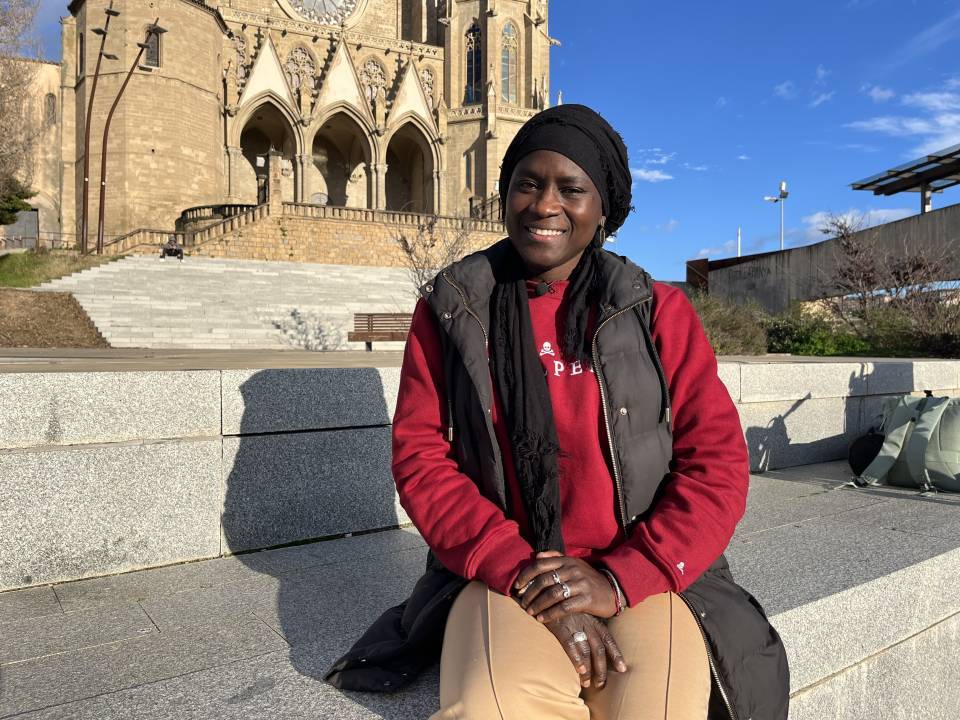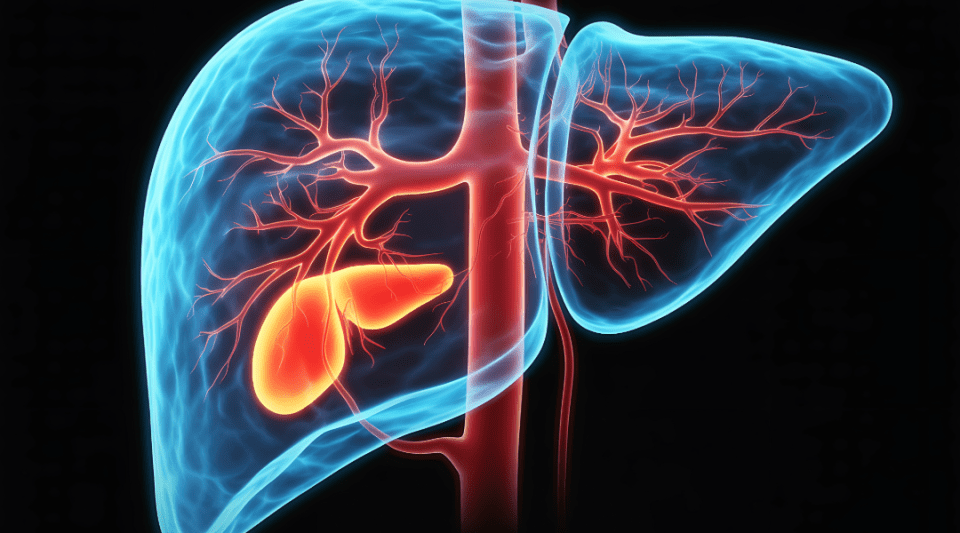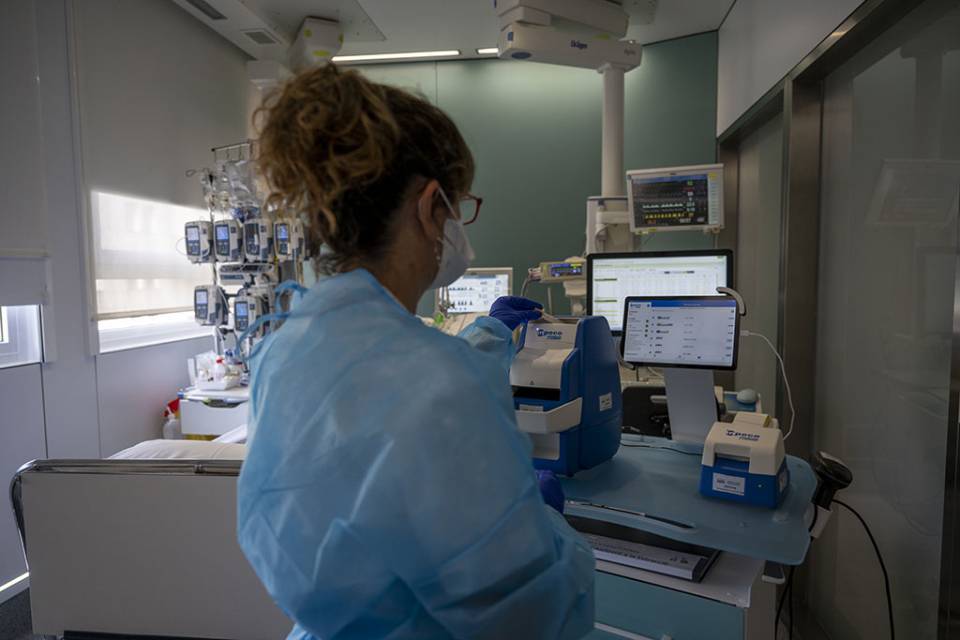BCNatal, formed by the Hospital Clínic Barcelona and the Hospital Sant Joan de Déu, started the HDOM mother-baby programme in March and, since then, almost 250 women have been able to continue their hospitalization at home after childbirth. The mother-baby hospitalization programme allows healthcare to be transferred to the patient’s home, whilst at all times guaranteeing the safety of the mother and the baby, who benefits from the comfort of being at home. If there is no contraindication, between 12 and 24 hours after the delivery the patient is transferred home, incorporating an in-person visit by the midwife within 48 hours of the baby’s birth.
The team of midwives who go to the homes say that the experiences have been satisfactory and that the mothers “appreciate the proximity of the professionals and the individualization of each case." Laura Mallen, a midwife at the Clínic, says that home hospitalization benefits the family’s adaptation to the new environment and makes it possible to provide a continuity of care that could not be offered until now. “During home visits, we make a comprehensive assessment of the mother and child, carry out all the necessary complementary tests, such as the heel prick test or hearing screening, and assess breastfeeding and provide support and health education,” she explains.
Women who are considered to be at low obstetric risk, with uncomplicated deliveries, and when the baby is also not considered to be at risk, may benefit from the programme. To be eligible, patients must live a maximum of 30 minutes from the hospital, have adequate family support, and have a telephone and digital connection at home. To date, more than 120 women have taken part in the HDOM mother-baby programme at the Hospital Clínic Barcelona and more than 250 families in BCNatal as a whole.
Bruna was born at the Maternitat Site on 4 August this year. Her mother, Marta Garcia, benefited from the HDOM mother-baby programme, going home 24 hours after giving birth. “I was apprehensive, since she’s my first daughter and I had lots of concerns. At the hospital, you can solve them immediately, but they made me feel very confident and reassured, as the professionals come to your home to make sure everything is going well,” she explains. Marta assures us that during the hospital stay she felt very well supported and cared for and she felt the same way when she continued her hospitalization at home.
During the home hospitalization, the patient can contact the reference professionals to clarify issues or ask about any doubts that may arise via a reference telephone number that the professionals provide. “I would recommend joining this type of programme 100%. Experiencing these first hours and experiences with the peace of mind of being at home, in your own environment, but at the same time with professional monitoring and supervision is priceless,” she points out.
Dr Ana Alarcón, head of the BCNatal (Hospital Clínic Barcelona – Hospital Sant Joan de Déu) Neonatology Department, thinks that the programme “is very interesting because it focuses on the patient, is committed to personalized medicine, and combines the convenience and comfort of being at home with safe care, accompanied by the midwife and the rest of the healthcare team.” “The programme also reduces the risk of hospital-acquired infections and frees up healthcare resources,” explains Dr Francesc Figueras, head of the BCNatal Maternal-Fetal Medicine Department.
The HDOM mother-baby programme is an innovation that consolidates BCNatal’s leadership in perinatal health, taking advantage of the previous experience of both the Clínic and Sant Joan de Déu hospitals, which already have home hospitalization programmes for other groups of patients.




